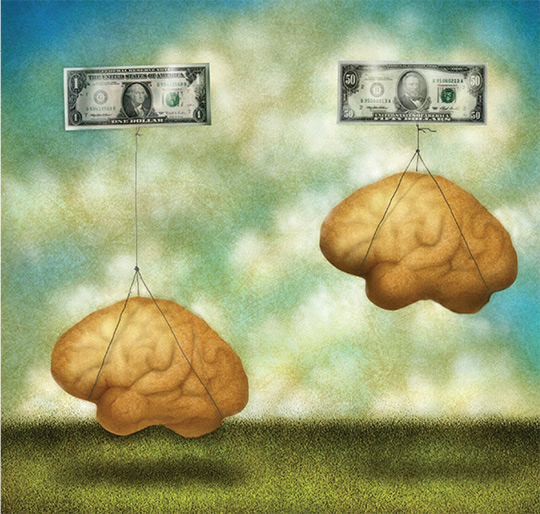How Poverty Shapes The Brain
Being poorer may negatively affect children’s cognitive skills and behavior — a finding that supports stronger policies to help families
In February, when a Wall Street Journal opinion piece argued, in essence, that poor people are poor because they’re not as smart as rich people, the paper received a sharp rejoinder from Kim Noble.
“New neuroscience research suggests that childhood poverty may shape brain development, potentially explaining differences in subsequent cognitive skills and behavior,” wrote Noble, who becomes Associate Professor of Neuroscience & Education in July in the Department of Biobehavioral Sciences. “Poverty may be the greatest barrier to a child attaining full academic potential.”
Currently headlining that research is a paper Noble co-authored in April in Nature Neuroscience, which found an association between family income and children’s brain structure. The association appears strongest in lower-income families.
More than 1,000 typically developing children and adolescents between 3 and 20 years old, a group led by Noble and Elizabeth Sowell of The Saban Research Institute at Children’s Hospital Los Angeles found that increases in both parental education and family income were associated with increases in the surface area of brain regions implicated in language and executive functions. Family income appeared to have a stronger positive relationship with brain surface area than parental education.
“We can’t say if the brain and cognitive differences we observed are causally linked to income disparities.” said Noble. “If so, policies that target the poorest families would most impact brain development.”
The results do not imply that a child’s future cognitive or brain development is predetermined by socioeconomic circumstances Noble said that among children from the lowest-income families,small differences in income were associated with relatively large differences in surface area in a number of regions of the brain associated with skills important for academic success. Conversely, among children from higher-income families, incremental increases in income level were associated with much smaller differences in surface area. Higher income was also associated with better performance in certain cognitive skills — cognitive differences that could be accounted for, in part, by greater brain surface area.
In the study, titled “Family Income, Parental Education and Brain Structure in Children and Adolescents,” the researchers controlled for potential differences in brain structure related to ancestral origin by collecting DNA samples from each participant.
Noble and leading social scientists and neuroscientists are also conducting a pilot study in which new mothers receive large or small monthly income payments until their children turn three.
“If the children of mothers receiving larger payments show beneficial effects on brain function, it would be a step toward refuting the argument that poverty is a symptom, not a cause, and that wealthier parents are wealthy because they possess — and pass on — traits of self-discipline, determination and resilience,” Noble said. —Joe Levine
Read more about Kimberly Noble’s groundbreaking research:
Published Tuesday, May. 12, 2015

